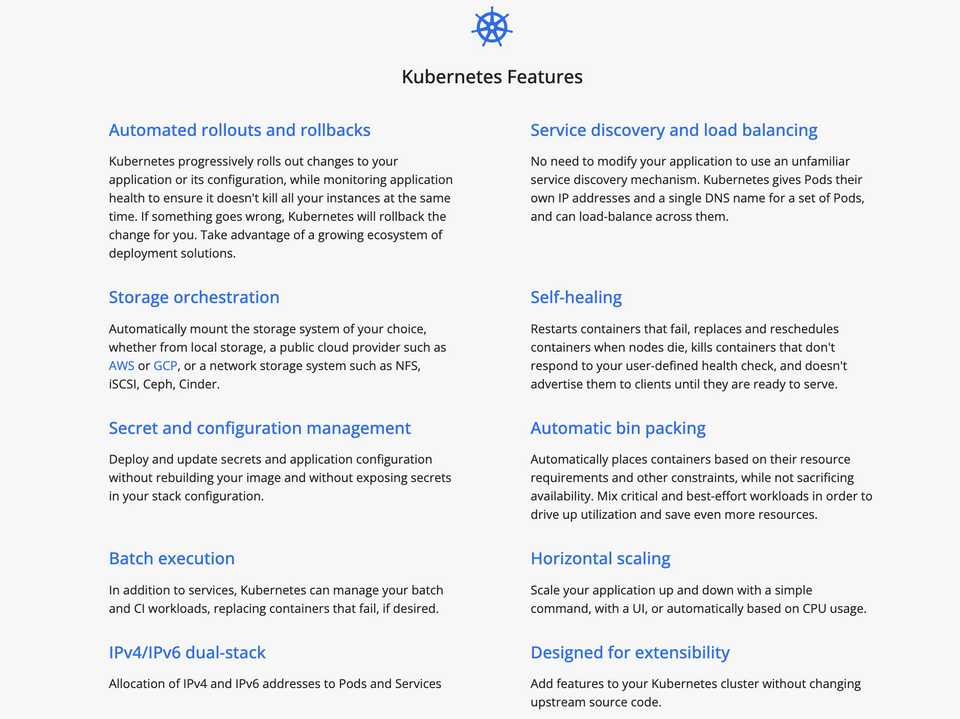What are the benefits of using Kubernetes in 2025
Last updated: Oct 21, 2025
Kubernetes is a popular open-source container orchestration platform that provides numerous benefits for managing and deploying containerized applications. Kubernetes aims to simplify the management of container-based deployments by abstracting away the underlying infrastructure details. It allows you to define the desired state of your application and handles the orchestration of containers to ensure that the actual state matches the desired state.
Kubernetes works with containers, which are lightweight, isolated environments that encapsulate applications and their dependencies. It leverages containerization technologies like Docker to package applications into portable and scalable units. Kubernetes acts as a management layer above these containers, providing a set of features and tools to manage and control their execution.
Some of the key benefits of using Kubernetes are:
-
High availability:
Kubernetes helps ensure high availability of your applications by providing features like automatic container restarts, replication, and fault tolerance. It can detect and replace failed containers or nodes, minimizing the impact of failures and improving the overall reliability of your system.
-
Container orchestration:
Kubernetes simplifies the management of containerized applications by automating various tasks such as deployment, scheduling, scaling, and load balancing. It provides a declarative model for defining the desired state of your application, and it continuously monitors and adjusts the system to maintain that state.
-
Scalability:
Kubernetes allows you to easily scale your applications up or down based on demand. It can automatically manage the distribution of containerized workloads across a cluster of machines, ensuring that your application can handle increased traffic or workload without downtime.
-
Portability:
Kubernetes allows you to run your applications consistently across different infrastructure environments, whether it’s on-premises, in the cloud, or in hybrid setups. It abstracts away the underlying infrastructure details, making it easier to move your applications between different hosting providers or environments.
-
Service discovery and load balancing:
Kubernetes includes a built-in DNS-based service discovery mechanism, allowing containers to discover and communicate with each other using their DNS names. It also provides load balancing for distributing traffic across multiple instances of your application, improving performance and availability.
-
Self-healing:
Kubernetes actively monitors the health of containers and automatically restarts or replaces failed containers. It also provides features like liveness and readiness probes to check the status of containers and take action if they become unresponsive or unhealthy.
-
Extensibility:
Kubernetes has a rich ecosystem of extensions and plugins that can be used to enhance its functionality. You can integrate additional services for logging, monitoring, security, and more, to tailor Kubernetes to your specific requirements.
-
Resource efficiency:
Kubernetes optimizes the utilization of computing resources by intelligently scheduling containers based on their resource requirements and availability. It can pack multiple containers onto a single machine, making the most efficient use of hardware resources and reducing costs.
These benefits of using Kubernetes, among others, make it a powerful tool for managing containerized applications, providing scalability, high availability, efficient resource utilization, and simplified deployment and management processes.

